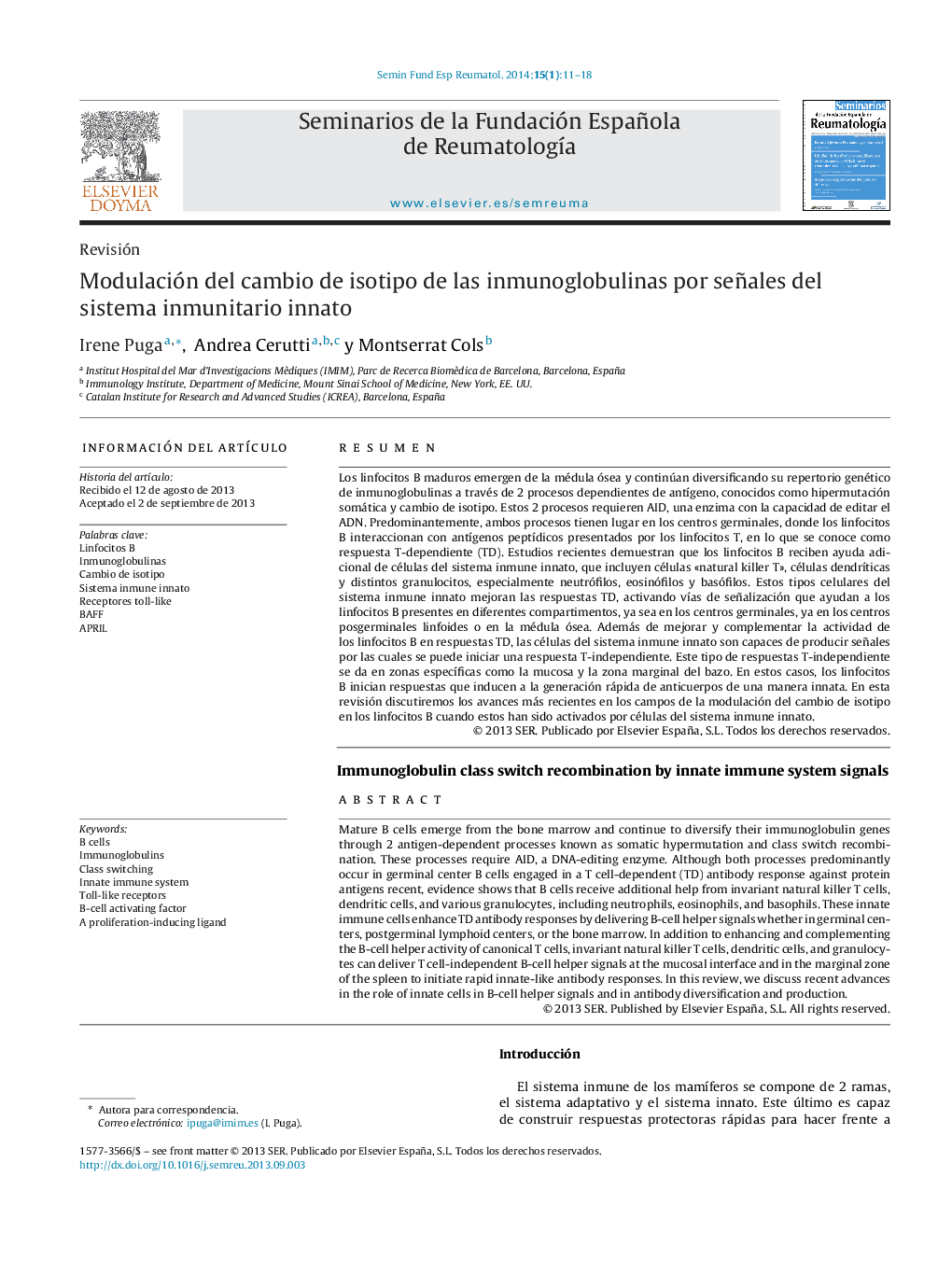| Article ID | Journal | Published Year | Pages | File Type |
|---|---|---|---|---|
| 3390985 | Seminarios de la Fundación Española de Reumatología | 2014 | 8 Pages |
Abstract
Mature B cells emerge from the bone marrow and continue to diversify their immunoglobulin genes through 2 antigen-dependent processes known as somatic hypermutation and class switch recombination. These processes require AID, a DNA-editing enzyme. Although both processes predominantly occur in germinal center B cells engaged in a T cell-dependent (TD) antibody response against protein antigens recent, evidence shows that B cells receive additional help from invariant natural killer T cells, dendritic cells, and various granulocytes, including neutrophils, eosinophils, and basophils. These innate immune cells enhance TD antibody responses by delivering B-cell helper signals whether in germinal centers, postgerminal lymphoid centers, or the bone marrow. In addition to enhancing and complementing the B-cell helper activity of canonical T cells, invariant natural killer T cells, dendritic cells, and granulocytes can deliver T cell-independent B-cell helper signals at the mucosal interface and in the marginal zone of the spleen to initiate rapid innate-like antibody responses. In this review, we discuss recent advances in the role of innate cells in B-cell helper signals and in antibody diversification and production.
Keywords
Related Topics
Health Sciences
Medicine and Dentistry
Immunology, Allergology and Rheumatology
Authors
Irene Puga, Andrea Cerutti, Montserrat Cols,
